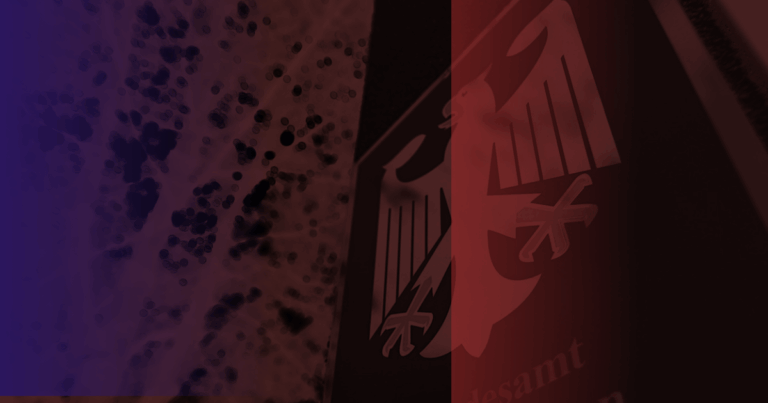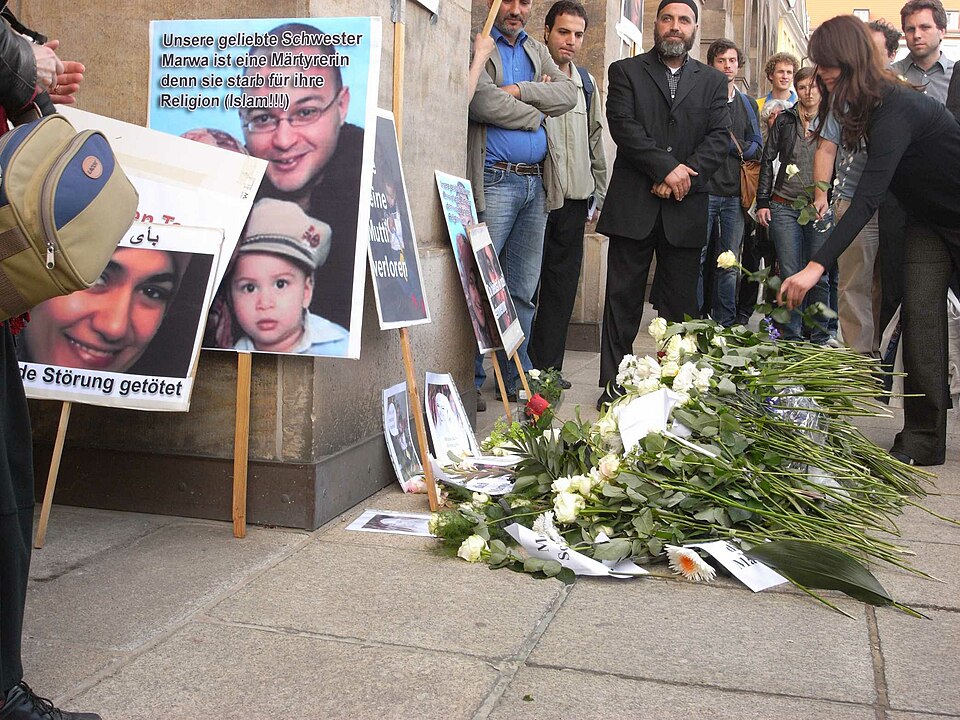NEWS FROM BERLIN
“The mullahs must go”
Tens of thousands took to the streets in Berlin last Saturday in solidarity with the protests in Iran. The roads towards Berlin’s Siegessäule were full before the official start of the Iran Freedom Rally at 3pm. Dozens of coaches are parked on the Straße des 17. Juni; Iranian exiles from all over Europe responded to the call for a demonstration. The protest was announced by the transnational collective Women*_Life_Freedom. Many participants carried Kurdish flags, too. Hamed Esmaeilion, an Iranian-Canadian activist, spoke to great cheers. The wording of his emotional speech was reminiscent of Martin Luther King’s famous “I have a dream” speech. Source: nd
Berlin Police raid chat group
The Berlin police launched a major raid against members of a Telegram chat group. According to the report, the reason was messages which included violent fantasies against politicians and comparisons between Corona politics and the Holocaust. Four Berlin men aged 41 to 57 and a 66-year-old woman are being investigated. They are accused of incitement of the people, use of symbols of unconstitutional organizations, public incitement to commit crimes and depiction of violence. Mobile phones, tablets and laptops were confiscated during the raid, and several violations of the Weapons Act were also found. Source: rbb
NEWS FROM GERMANY
Pension justice for Eastern Germans
More than 30 years after the annexation of the GDR, the East is still left behind. The traffic-light coalition is doing nothing for pensioners in East Germany who have been fighting for more than 30 years for recognition of their life’s work. It is shameful that the coalition is obviously relying on a biological solution to save funds, so Christian Lindner also gets the “debt brake”. The previous federal government had already promised to pay at least partial compensation to pensioners whose entitlements were not taken into account in the pension transition. The “Ampel” coalition wanted to finally implement this plan, but funds were not available in 2022. Source: jW
Boris Palmer: risk and opportunity
Boris Palmer (“die Grünen”) is generally regarded as a controversial figure, but in Tübingen the situation is clear: Palmer has won the mayoral election, for the third time in a row. He won because, from the majority’s point of view, he is a very good mayor. He has brought the city forward economically and ecologically. But Palmer´s victory can be also considered complicated for his party due to some of his statements such as those concerning refugees. Given the whole figure, Palmer’s victory is both an opportunity and a risk for the party. Source: Süddeutsche
Blackout 2022 in Germany
Since the Ukraine war started, the energy supply in Germany (and ultimately in the EU) has been in danger. In the worst-case scenario, a blackout is imminent in 2022. In Bremen, the police, fire brigade and disaster control are preparing themselves against this. For instance, emergency power and digital radio ensure that work can function smoothly. Using digital radio, the crisis teams will be able to communicate with each other independently of the telephone network and electricity. Clinics are also equipped with emergency power generators. Furthermore, the Bremen fire brigade is on standby and can help with additional generators. Source: kreiszeitung
Corona variant BQ.1.1 in Germany
The so-called “hellhound” has arrived in Germany. The new Corona variant BQ.1.1 seems to live up to its nickname. Experts are increasingly concerned about the variant which currently rapidly circulating. It may make sense to already consider a fifth Corona vaccination against the virus. In Germany, 15 per cent of the sequenced Corona samples currently come from BQ.1.1, according to Moritz Gerstung, professor at the University of Heidelberg. The data is not particularly robust, however, as sequencing is rather rare in Germany compared to the rest of the world. This means the number could be much higher. Source; kreiszeitung
Brandenburg extends infection protection ordinance
The state of Brandenburg is extending the current infection protection regulation against the Corona virus until 24 November. This was announced by the Potsdam Ministry of Health, Ursula Nonnenmacher (“die Grünen”). This means, for example, that the obligation to wear a mask in public transport, hospitals, and for patients in doctors’ offices will remain in force. Patients will also be required to take a test. In Brandenburg, the Corona traffic light has been red since 6 October. Nonnemacher said the cabinet has agreed on discussing further protective measures when necessary. Source: rbb
Germany faces recession
After the economic forecast dropped again in October, the Munich-based research institute “Ifo” points out the business community expects a negative business trend in the future. According to its index, the retail sector, for example, is afraid of losing more customers due to high inflation. The concern is justified. Due to the recent high inflation of ten per cent, consumer behavior is at its lowest level in 16 years, according to a survey published on Tuesday by the German Savings Banks and Giro Association (DSGV). According to the survey, 65 percent of the interviewees are already saving on everyday expenses. Source; jW
Legalize… maybe in 2024
The Federal Cabinet has agreed on key points for the planned legalization of cannabis. According to a plan, presented by Health Minister Karl Lauterbach (SPD), the purchase and possession of cannabis is to be permitted within limits. However, a concrete bill will only be drafted when it becomes clear that the EU has no legal objections to the release of cannabis – which is by no means certain. Also, Bavaria reiterated its criticism of the plans of the “traffic-light” coalition. Health Minister Klaus Holetschek (CSU) fears, among other issues, of a “drug tourism to Germany.” Source: Süddeutsche



